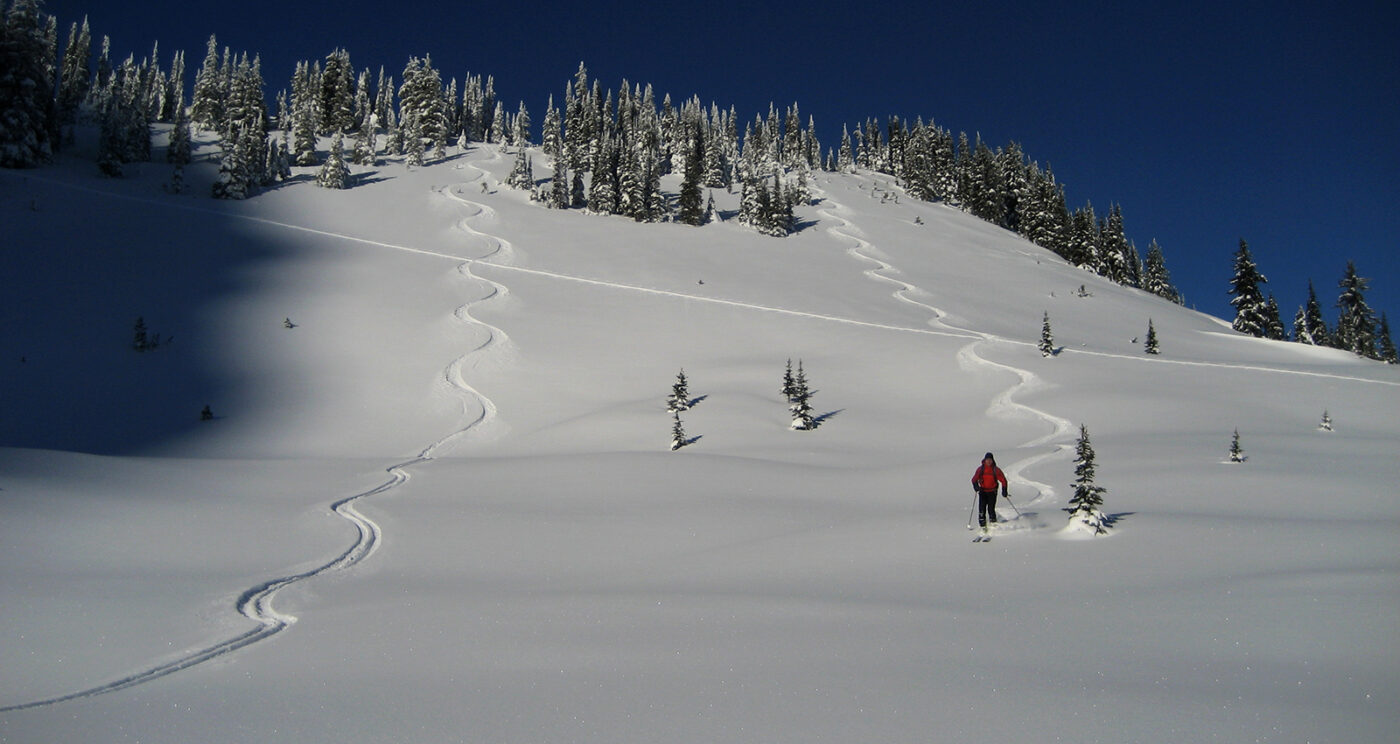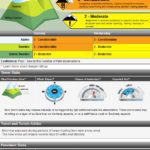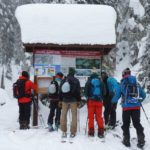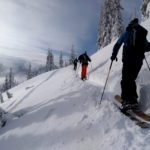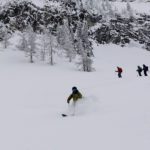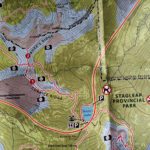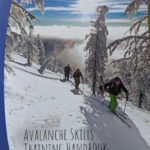Learn the basics of safe winter travel in avalanche terrain…
Are you planning to explore the local backcountry this winter? Perhaps you are thinking of riding out-of-bounds? If so, you need to learn the basics of backcountry skiing and avalanche safety! By joining one of our AST 1 courses, you will learn; how to identify avalanche terrain, use mitigation techniques, read snowpack information, and manage changing conditions. This course will build your confidence to help you avoid avalanches, choose the right terrain, and enjoy some safe turns with your friends.

This 2 day introductory course is based out of Nelson BC. It follows Avalanche Canada’s program, goals, and objectives. For more specific details about this course continue browsing below. Check out a review of the course done by Backcountry Skiing Canada for more photo’s and previous course perspective.
Students must complete roughly 2 hours of interactive online learning before attending the AST 1.
Day 1: Half classroom, half field day. We will spend the morning discussing and watching videos on topics like: avalanche hazard recognition, terminology & mechanics, mountain weather, snow pack structure & basic terrain evaluation. We will also sign a liability waiver and do a gear check. We will spend the afternoon outside doing avalanche rescue practices, terrain recognition and navigation.
Day 2: Full backcountry day. The group will meet at 7:30am and drive to a ski touring destinations to be established in the West Kootenay backcountry. During the days, we will spend 8hrs outside. We will focus on learning and practicing skills like: avalanche terrain evaluation, mountain hazard assessment, safe route finding techniques, snow pack analysis and snow testing techniques.
Students will receive a CAA certificate and personal feedback before course end
Intermediate backcountry skiing or boarding ability (touring equipment, snow board & snowshoes or split board required). Previous avalanche training useful but not required. Students must be intermediate to advanced resort riders. Students are responsible to self evaluate their skills as groups need to be matched together based on prior experience and ability. Please contact us to discuss your background.
Pre-course reading: Avalanche Skills Training Handbook
This course is based in Nelson BC. Field days will occur in the Selkirks Mtns, the local backcountry near Nelson. Details will be given to participants before course start. For a list of possible venues click Nelson Classics.
Kootenay weather can vary drastically. In winter you can expect temperatures to be from -20C to –5C in the day while in spring daily temperatures could rise well above zero. Visibility may be poor or whiteout conditions when snowing heavily or clear on bluebird days. Ensure you are dressed for all variations as temperatures, wind, precipitation can change within the day.
What’s included:
- Pre-trip planning support
- Certified ACMG, IFMGA and/or CAA instructor
- AST 1 class notes
- Avaluator™ Trip Planner
- Avalanche Skills Training Handbook
- Group safety equipment (communication device, rescue kit, first aid supplies, GPS, maps)
Not included in price:
- Lunch, snacks
- GST 5% tax
- optional field book: Staying Alive in Avalanche Terrain
- Personal ski touring boots, skis, skins or splitboard
- personal avalanche safety equipment *SMG rentals available $60/day for complete set or beacon ($30), shovel ($15) & probe ($15)
- Transportation to touring locations
- Trip cancellation, adventure travel insurance, rescue & medical insurance
Where can I rent Ski touring and safety equipment?
Here are a few outdoor stores in Nelson that supply good service and quality outdoor equipment and gear rental, please ensure you rent gear well in advance.
ROAM phone 250-354-2056
Valhalla Pure Outfitters phone 250-354-1006
Gericks phone 250-354-4622
Sacred Ride phone 250-354-3831
What transceiver should I use?
If you are interested in touring in the backcountry with friends or take one of our courses, it is very important to get a modern “triple antenna digital transceiver” with a marking function. We ask participants to ensure that they have a digital transceiver for the course.
For recreational skiers and boarders, we suggest the following beacons: Baryvox, Ortovox, Peeps, or Tracker. For people that are moving towards working in the ski industry a more professional “more advanced” beacons is recommended, such as Baryvox “S”, Ortovox “3+”, Tracker “S”, or Peeps “guide”.
Skis, Telemark or Split Boards?
Which should you use? If you are a downhill skier then you should use Alpine Touring gear. Only if you are already an advanced Telemark skier or Snowboarder should you bring Telemark or Split Board gear. All types of gear can be rented in Nelson prior to your day trip. There are three types of backcountry systems you can use:
Alpine Touring skis are essentially downhill skis with a special touring binding which allows the heel to lift whilst going uphill or across the flats and then ‘locks down’ to become a regular downhill safety binding. We recommend this system to anyone with a background of downhill skiing who is not already an advanced telemark skier.
Telemark skis. These should only be used for this program if you are at least an advanced-intermediate telemark skier with some backcountry experience. This system is more difficult and less forgiving than the others.
Snowboarding with a Split Board is the most effective way to snowboard in the back country. We recommend this system to advanced snowboarder over snowshoeing.

